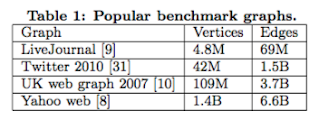Serving at NSF panels and what it teaches about how to pitch the perfect proposal
NSF is one of the largest funding sources for academic research. It accounts for about one-fourth of federal support to academic institutions for basic research. NSF accepts 1000s of proposals from researchers, and organizes peer-review panels to decide which ones to fund. Serving at NSF panels are fun. They are also very useful to understand the proposal review dynamics. NSF funding rates are around 10% for computer science and engineering research proposals, so understanding the dynamics of the panel is useful for applying NSF to secure some funding. How do you get invited as a panelist? You get invited to serve at an NSF panel by the program director of that panel. (Program directors are researchers generally recruited from the academia to serve at NSF for a couple years to run panels and help make funding decisions.) If you have been around and have successfully secured NSF funding, you will get panel invitations. They will have your name and contact you. But, if...


